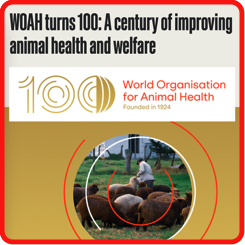🔝
🔝
International agreements
Convention on Biological Diversity (CBD or “Biodiversity Convention,” Rio de Janiero, 1992)
· Peace & Biodiversity Dialogue Initiative
· Sustainable Ocean Initiative (SOI)
· Preparations for the Post-2020 Biodiversity Framework
Convention on International Trade in Endangered Species (CITES, 1973)
Convention on Wetlands (Ramsar, 1971)
World Charter for Nature (UNGA, 1982)
International negotiating blocks
High Ambition Coalition for Nature and People
· "...an intergovernmental group of more than 45 countries co-chaired by Costa Rica and France
and by the United Kingdom as Ocean co-chair, championing a global deal for nature and people
that can halt the accelerating loss of species, and protect vital ecosystems that are the source of
our economic security."
International organizations
· Biodiversity-related UN agencies and programs are highlighted at the main UN page.
G7 Alliance on Nature Positive Economies
· "In the G7 2030 Nature Compact, an annex to the communiqué at the G7 Summit in 2021, a
commitment was made to a global mission to halt and reverse biodiversity loss by 2030 and
to become “Nature Positive”. Promoting investments in nature and nature-positive economies
was manifested as one of its pillars. Realizing Nature Positive Economies requires a transition
to an economy and society where nature is mainstreamed and its diverse values are incorporated
and enhanced. To this end, “the G7 Alliance on Nature Positive Economies (G7ANPE)” was
established at G7 Sapporo, as a forum to share knowledge and create information networks on
the nature positive economy."
Global Environment Facility (GEF)
· Established 1992
Intergovernmental Platform on Biodiversity and Ecosystem Services (IPBES)
· Established 2012
International Council on Monuments & Sites (ICOMOS)
US National Committee for ICOMOS (US/ICOMOS)
International Geosphere-Biosphere Programme
· Defunct 2015; unuptated website accessible.
International Union for the Conservation of Nature and Natural Resources (IUCN)
· See extensive listing of IUCN components at Hybrid governmental-nongovernmental IOs
Panorama: Inspiring Protected Area Solutions
World Organization for Animal Health (OIC)
International initiatives, networks & social movements
· “BIODEV2030 is an experimental approach implemented in 16 pilot countries with multiple
socioeconomic, environmental and geographic contexts. It aims to provide the governments
of each country with the means to identify and lead, along with the private sector and civil
society, profound changes in those sectors of the economy with a strategic impact on
development and on the biodiversity of the country.”
Biodiversity Finance Initiative (BIOFIN)
· A project of GEF, UNEP, UNEP-WCMC, and the governments of Ghana, Mozambique, and Uganda.
· GEF project page
Data Reporting Tool for MEAs (DaRT)
· “...provides private and secure national working spaces for Parties to effectively use synergies in the
field of knowledge and information management for national reporting to biodiversity-related
conventions.
G7
Global Youth Biodiversity Network (GYBN)
Global Biodiversity Forum
· Defunct; no website.
International Conservation Caucus Foundation
International Conservation Corp
International Biodiversity Observation Year (2001-2)
International Partnership for the Satoyama Initiative (IPSI)
Poverty and Conservation Learning Group
Governmental agencies
International Office @ US Fish & Wildlife Service
Private sector initiatives
· “a global coalition that brings together business and conservation organizations and forward-
thinking companies. Together, we demonstrate and amplify a credible business voice on nature
calling for governments to adopt policies to reverse nature loss in this decade. We work with
more than 70 international and national partners and a diverse group of businesses from all
sectors, sizes and geographies. We encourage companies to commit and act to reverse nature
loss, and advocate for greater policy ambition.”
Biodiplomacy
Although the term biodiplomacy has been used in different contexts with multiple diverging definitions,
here it is roughly defined as “international cooperation for biodiversity conservation.”
Contents of this page:
· International agreements
· International negotiating blocks
· International organizations
· International initiatives, networks & social movements
· Governmental agencies
· Private sector initiatives
While information on biodiplomacy is disbursed throughout the biodiversity pages, key resources
include:
· Migratory species page
· Bioprospecting page
As there are many regional international institutions and initiatives for biodiversity conservation, also




















